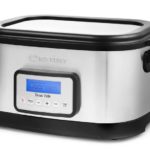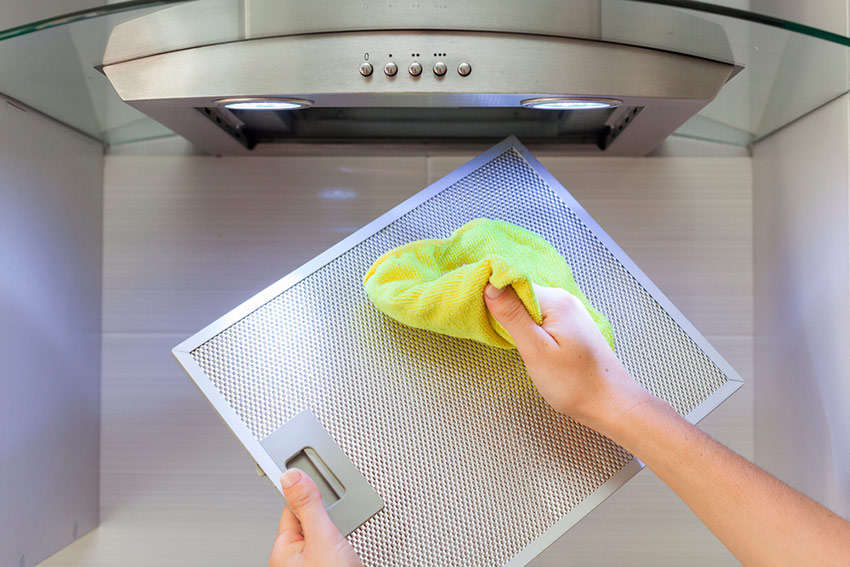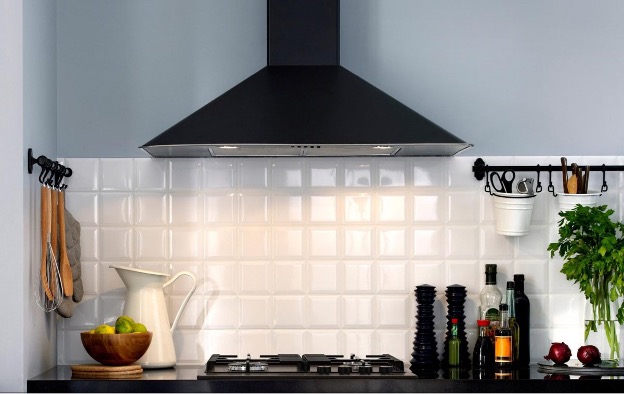Why do you need a carbon filter in a hood? Purpose of the device
It is quite simple to understand why a carbon filter is needed in a hood. During cooking, many foreign odors and even solid impurities appear in the air and rise upward. If there were no filter, they would settle on the inner surface of the pipe, in the fan mechanism, significantly reducing their service life. Therefore, the filter is an absolutely necessary element of the exhaust system, which must be installed in it for safety reasons.
The content of the article
Purpose of the filter
Almost every hood has a carbon filter. This is an inexpensive filler that performs an important function. It cleans the incoming air from various odors, including unpleasant ones, as well as small impurities.
There is no doubt about whether a carbon filter is needed in the hood. The principle of its operation is quite simple. The fan draws air currents, like in a vacuum cleaner, but only with less power. They come from the stove up and then go into the pipe. But they first pass through porous carbon, which absorbs (holds on the surface) not only odors, but also solid particles.
Even with perfectly proper cooking and maintaining sanitation, fumes, soot particles, fumes and other small inclusions enter the air. If not for the additional insert, they would have settled on the inner surface of the pipe.Because of this, it would become very clogged, which would lead to the need for rapid replacement.
That's what the carbon filter is for in the hood - it protects it from soot, smoke, and other particles. This significantly increases the service life of the entire system, including the fan. And replacing the coal itself is much easier and cheaper.
Pros and cons of filters
It’s clear why you need a carbon filter in your hood. Along with effective air purification, it provides several more advantages:
- affordability;
- easy installation and replacement;
- It is built into already installed furniture, which saves space.
There are also disadvantages. One of them is related to the need to regularly replace the carbon element. Although it is not difficult to do it yourself within a few minutes. In addition, it is better to regularly change this component than the pipe itself or other elements. This once again shows why there is a carbon filter in the hood.
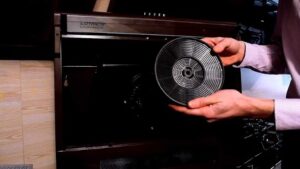
Another drawback is the noise when the device operates. But it is quite acceptable, and besides, the mechanism only works for a limited time. If you close the door in the kitchen, there will definitely be no noise in the room.
What types of filters are there?
To understand how to choose a coal hood for the kitchen, you need to understand what types it comes in. There are 2 main classifications. For example, there are different shapes of devices - convex or flat, oval or rectangular.
In practice, the division according to the operating principle is more significant:
- Liner – an element made of synthetic materials impregnated with activated carbon. The base can withstand high levels of humidity and hot flows, and the carbon element effectively absorbs impurities and eliminates odors. Here's how this type of charcoal filter hood works.
- Cassette element – in this case, the filter part is presented in the form of powder or small granules, which are poured into a plastic container. This is what is called a plastic cassette. The shape of the container can be different - flat, convex, in the form of a circle. Cassettes are inexpensive and can be easily replaced with new ones.
- Combined type – a filter element made of 2 components: synthetic material and separately activated carbon in the form of granules. They are more expensive, but the cleansing effect is more pronounced compared to other models.
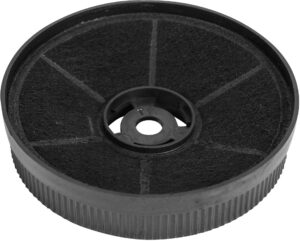
Now it’s clear what a carbon filter for an exhaust hood is and what main function it performs. This is an inexpensive and simple air purifying device. You can change it yourself, and modern models have a sensor that will remind you of the need to install a new cassette.

